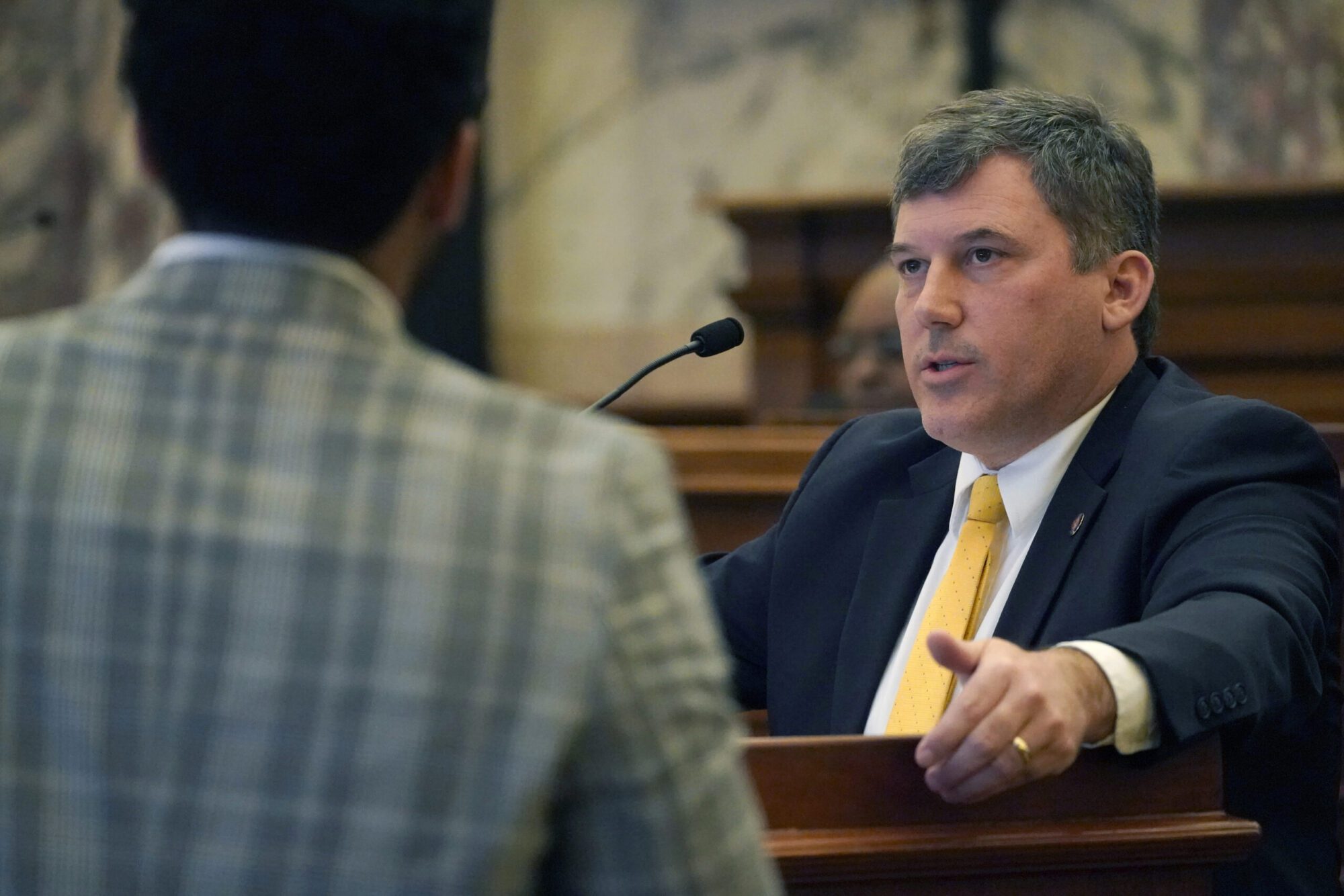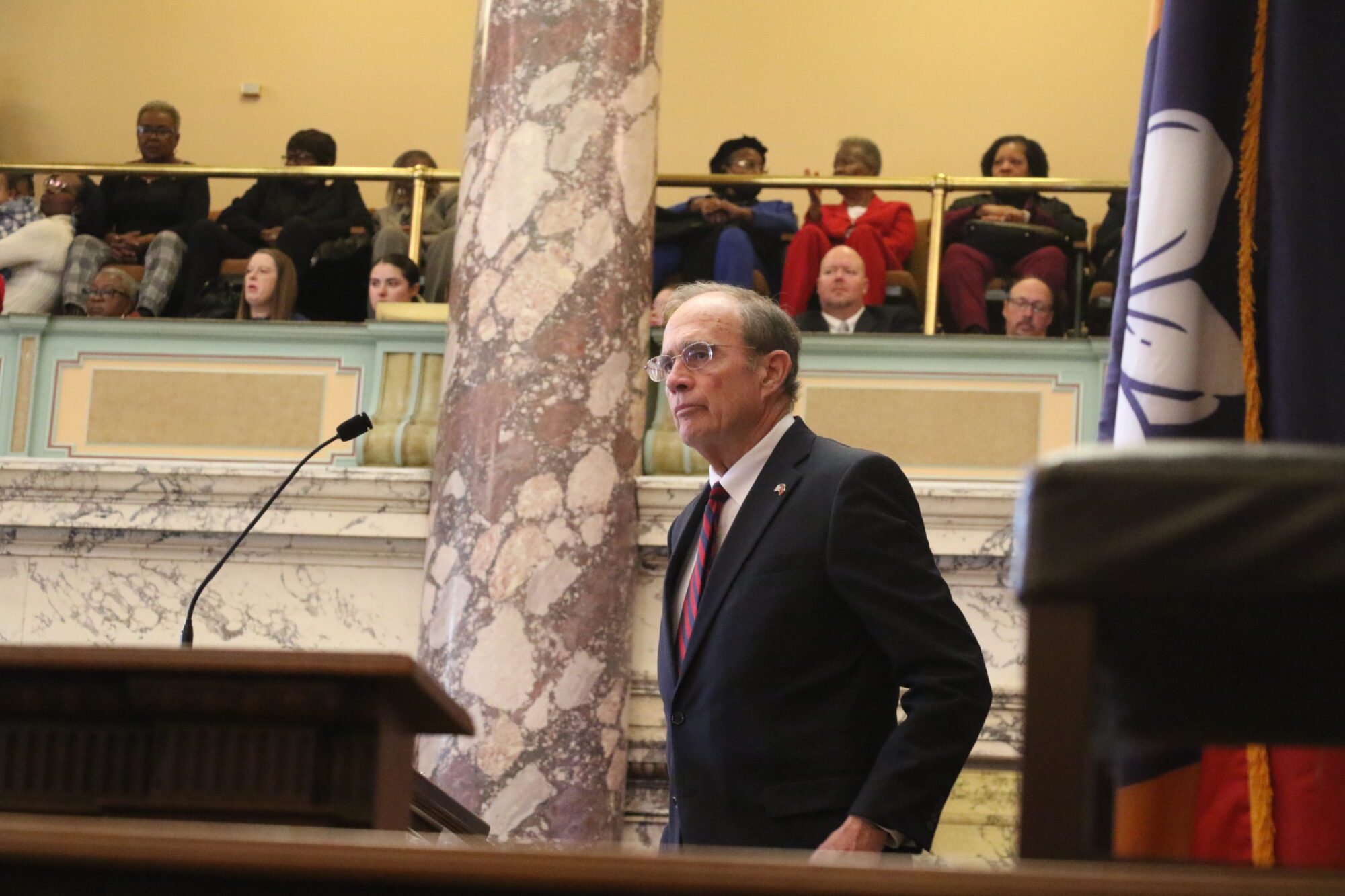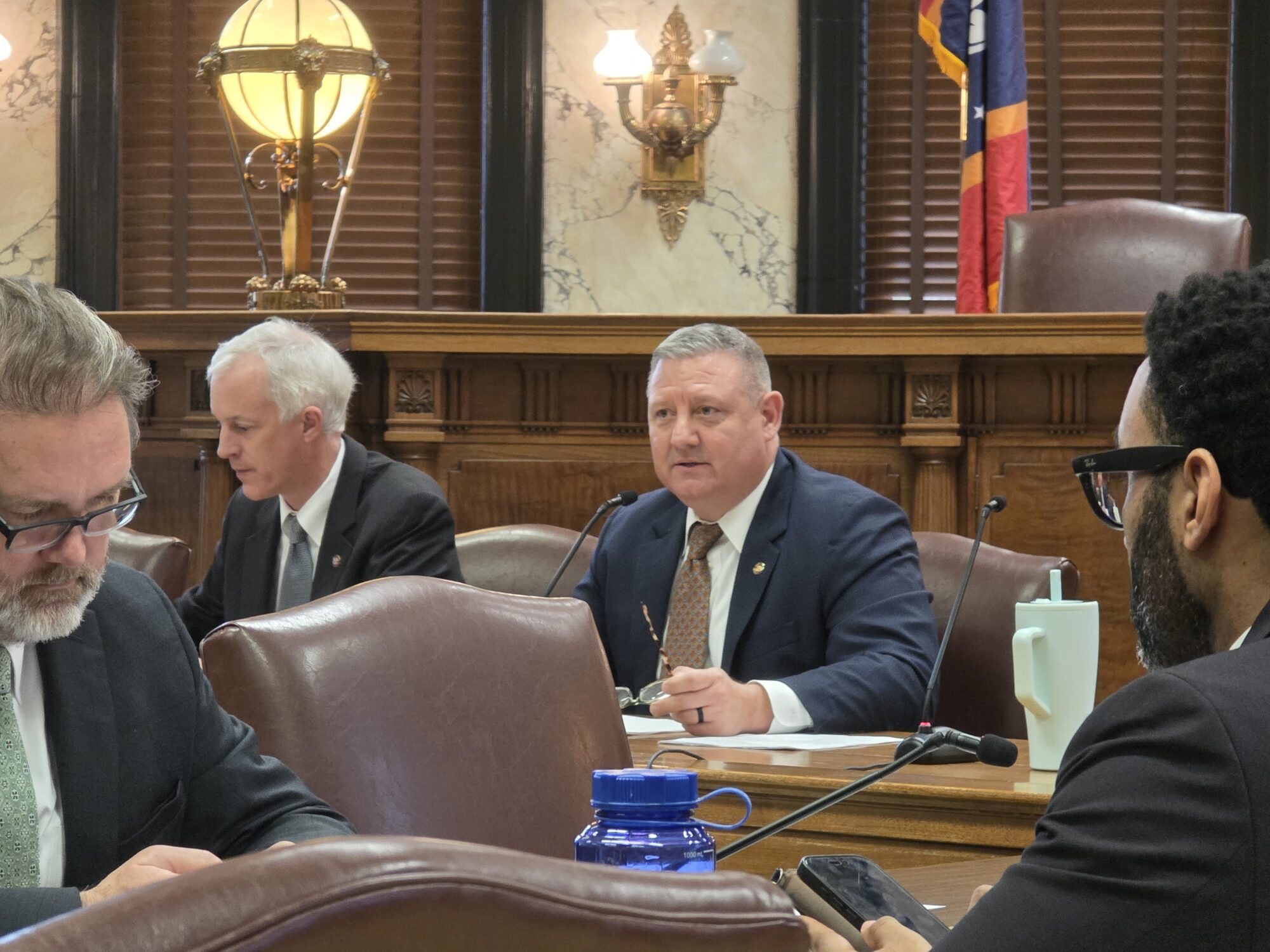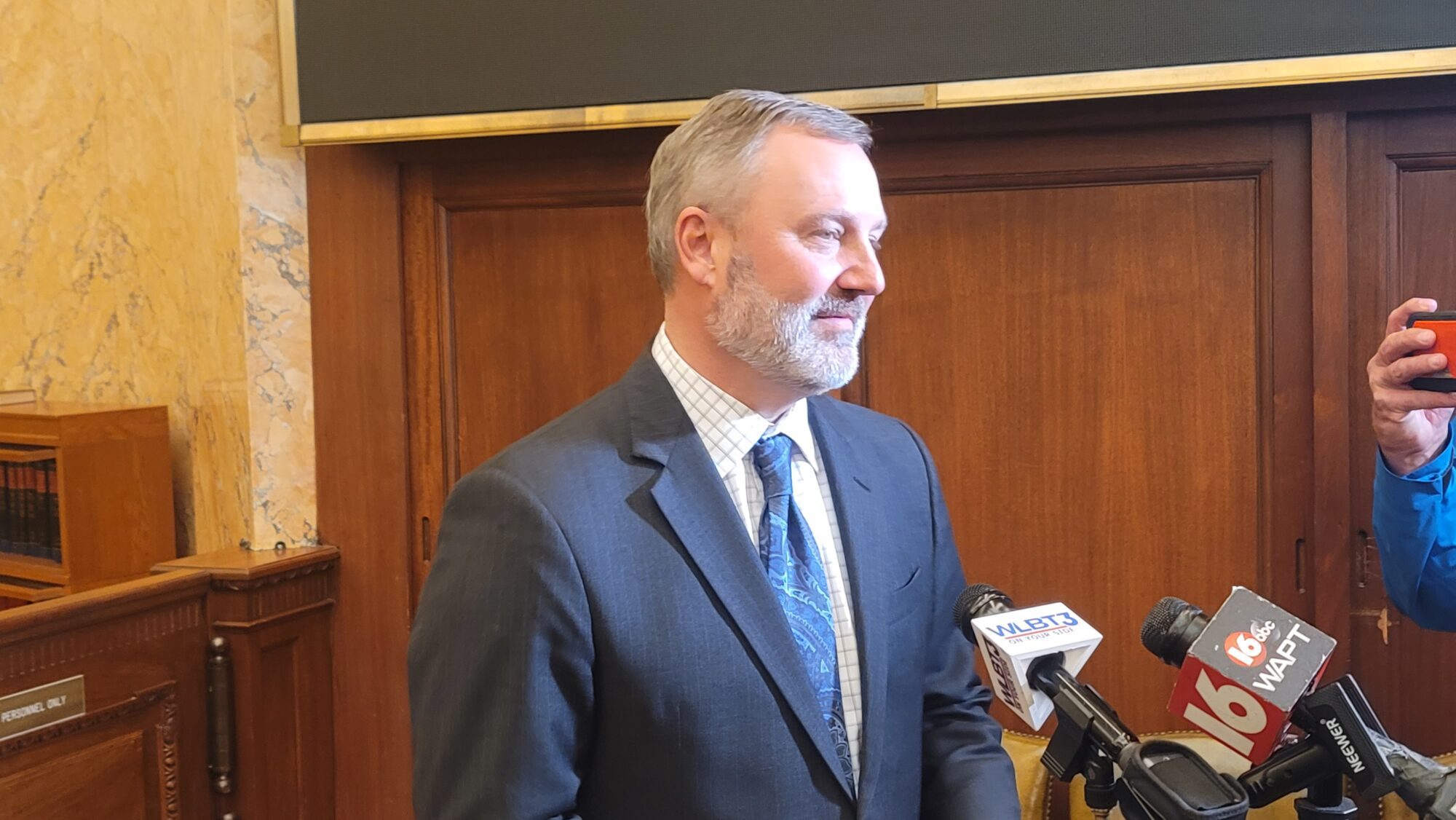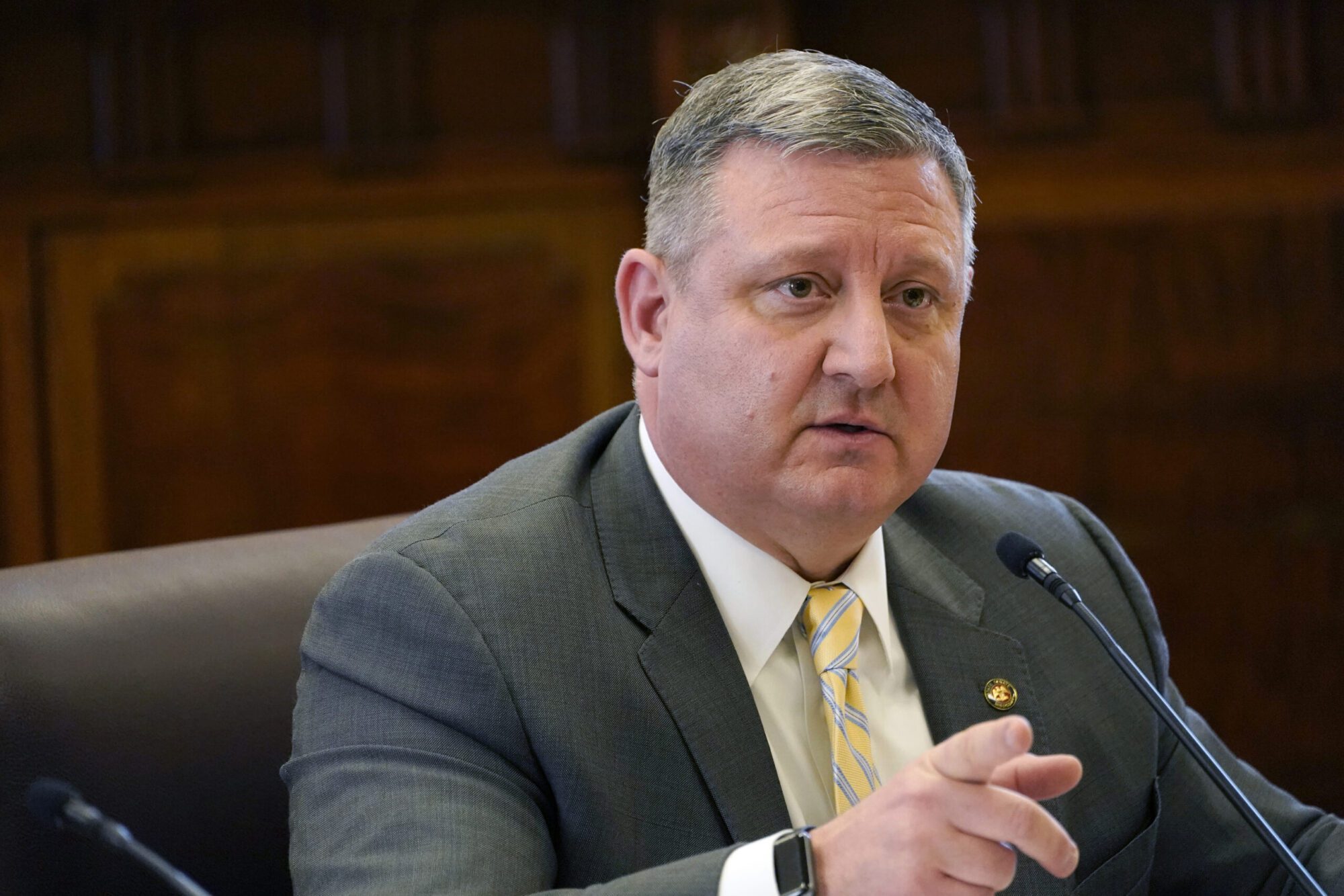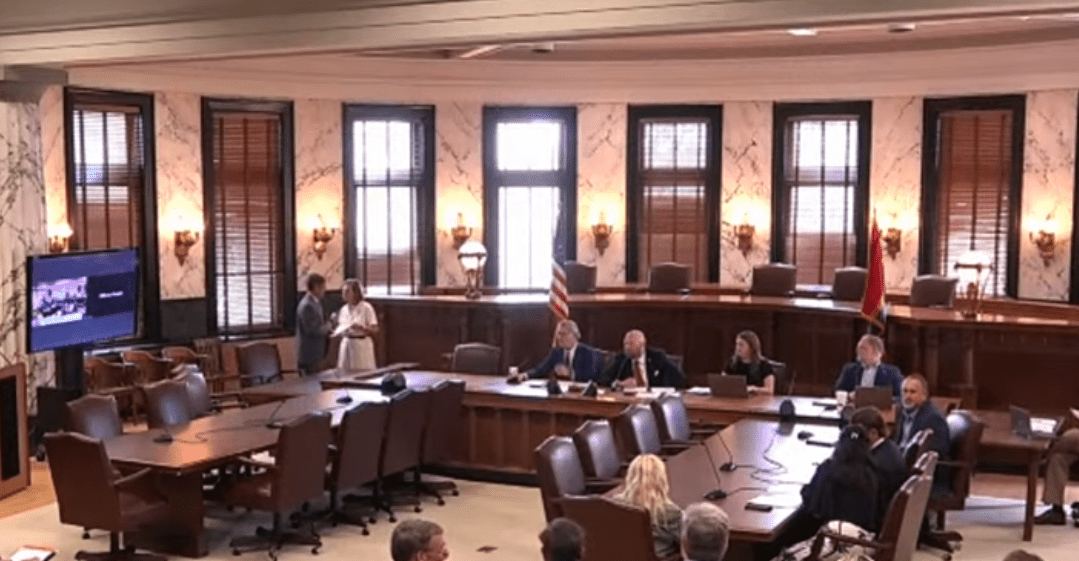
(Photo from Senate Energy Committee Livestream)
- Speaker after speaker told stories of a lack of transparency and no accountability for local water systems across Mississippi.
Mississippi’s capital city is not the only local governing body with water issues.
The Senate Energy Committee heard pleas from rural water customers and the Public Service Commission to increase regulations on the state’s water utilities at a hearing Tuesday at the state Capitol. However, an industry trade group said more regulation is not needed.
Speaker after speaker told stories of a lack of transparency and no accountability. They complained of low pressure, muddy or sand-infested water, destroyed appliances, poor customer service, and rude management. One speaker said testing found a high level of strychnine poison over multiple years.
“It’s not safe. We don’t eat it, we don’t drink it,” said Jenny Kennedy of her water from Pearl River Central Water Association, noting for weeks she had sand in her water.
“We are very strategic about when we use water. There [are] bacteria in the water because our water pressure is so low,” she continued, saying calls from customers often go unanswered by management.
Another speaker, Charles Pharr, testified that his provider does not post critical information on its website or send text messages when boil water advisories are in effect. The association has also removed customer satisfaction surveys and test results from its website.
The frustration for Pearl River County Administrator Adrian Lumpkin stems from the glacial pace at which the water authority operates. It can take up to four months to meter a house. Also, if there is an outstanding balance on a house, new homeowners must pay that balance before water service is connected.
“I think from a state level, a little more oversight is needed,” he told lawmakers.
Anne Smith has investigated thousands of water complaints during her time as a senior investigator for the Mississippi Public Service Commission. She testified that more than 470 complaints have been filed with the PSC in the last couple of years. By far, she said, rural water authorities lead customer complaints received by the commission.
Smith read a long list of complaints to the standing room only hearing room, ranging from an 80-year-old woman going without water for days to people claiming they contacted water authorities about leaks with no response and then receiving bills demanding several hundred dollars.
However, the PSC does not have regulatory authority to intervene in the operations of water associations.
“When I tell them the Public Service Commission doesn’t have authority, the most common question is ‘well, who does?’” Smith said.
All three PSC commissioners testified at the hearing. Central District Commissioner De’Keither Stamps (D) explained that often locally run utilities are worried about raising rates on their customers.
“Low rates are more dangerous than high rates,” he said. “You cannot keep kicking the can down the road.”
He continued by saying that low rates often mean maintenance and equipment are put on hold due to small budgets. One audience member gave Stamps a “damn right” for his assessment.
Stamps believes consolidating some rural water utilities would help in combating the issues. While not a popular opinion, it was also echoed by Southern District Commissioner Wayne Carr (R), who added that having utilities based in Mississippi is better than having them based out-of-state.
The Mississippi Rural Water Association said more oversight is not needed. The trade group’s CEO, Kirby Mayfield, told the committee that Mississippi already has the laws in place to provide water to its citizens.
“What the system needs is not more layers of regulation, but the tools to operate within the laws we already have,” Mayfield said.
He continued that new mandates can create confusion and lead to heavy costs for small utility operators.
“They are already running on limited resources,” Mayfield said.
He suggested the committee look at recent laws in other areas, such as in Arkansas regarding water authorities. Among other regulations, the Natural State’s new law requires a rate study every five years and the hiring of an engineer when a utility is at 80 percent capacity to look into expansion possibilities.
Mayfield also said Mississippi should consider workforce development for water utility operators. The majority of operators are near retirement age in the state.
Chairman Senator Joel Carter (R) said the committee received a high number of complaints from Mississippians, which is why the hearing was called. Carter said the committee will review materials and testimony before taking the next step.
You can watch the Senate Energy Committee hearing below.

